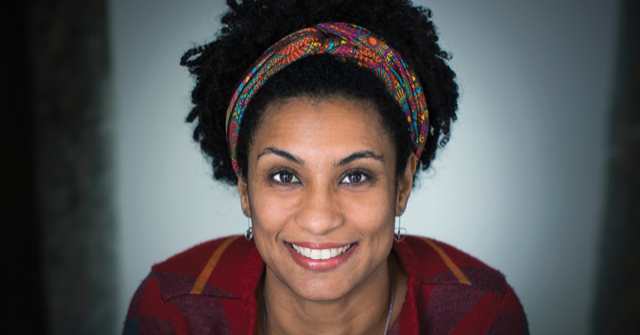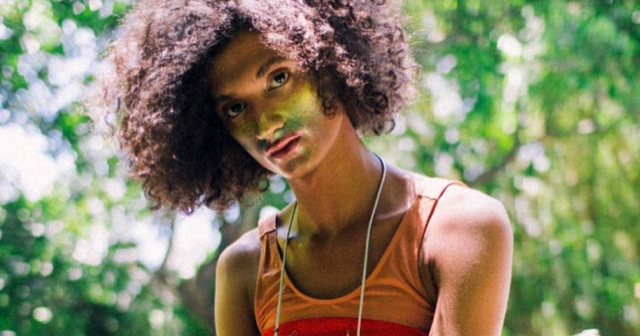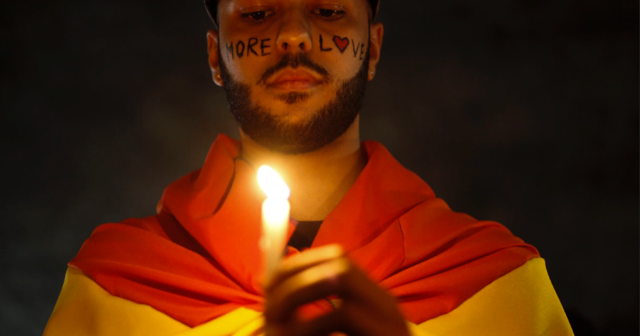The Grupo Gay da Bahia (GGB) entity that has been researching cases of LGBT+ murders in Brazil for the past 38 years registered 445 homicides in 2017. The number increased by 30% compared to 2016 which had 343 cases.
The research shows that 2017 was the year with the highest number of murders since the groups started the research almost four decades ago. From 130 homicides in 2000, it jumped to 260 in 2010 and to 445 last year.
Grupo Gay da Bahia president Luiz Mott said, “These massive numbers are only the iceberg tip of the violence and blood, there are no governmental statistics about hate crimes, these data are always underreported since our database are based on news published by the media, internet and personal information. Whom did homophobia kill today?”
One of the most known cases of 2018 so far it was that of 38 year-old black, lesbian councilwoman Marielle Franco, who was shot dead in her car in March, sparking thousands to protest in the streets.

Her partner Mônica Benício, whom she was planning to marry in 2019, spoke out following the apparent assassination, saying: “I don’t question at all that it was a political crime. She was our only black female councillor – a black, lesbian woman from the favelas occupying a position of power that’s predominantly reserved for the white men.”
A recent episode involved the student Matheusa Passarelli, 21 years-old, who identified as non-binary. Nine days after they went missing, the Police of Rio de Janeiro concluded that Matheusa was murdered by a cartel who burned their body.

The cases described above represents some examples of the sad and cruel reality of the homophobic violence in Brazil, the country which kills an LGBT+ person every 19 hours.
Last year, Mott said that the rising levels of violence were partially caused by the growth of and publicity given to ultra-conservative politicians.
The results were revealed as far-right anti-LGBT candidate Jair Bolsonaro who has homophobic views of the society and even once said he would prefer to have a dead son over a gay one, or in 2015 when he said hospital patients should be allowed to reject ‘gay blood’ — leads the presidential polls ahead of October’s general election.

Bolsonaro then equated homosexuality to paedophilia, making a link which is historically popular among homophobes and has experienced a resurgence over the past year, thanks to alt-right trolls.
The candidate, who served as an army captain under Brazil’s brutal 21-year-long dictatorship, said: “So let’s respect the paedophile’s right to have sex with a two-year-old? Would that unite [Brazil]?”
In 2013 the politician was interviewed by Stephen Fry, who just released a video appealing to Brazilian voters to reject Bolsonaro. Fry said, “He lives in a fantasy world of militarism which I find deeply upsetting and frightening.”
Ator britânico Stephen Fry diz que discurso de Bolsonaro contra negros, mulheres e a comunidade LGBTQ é "aterrorizante" pic.twitter.com/68iTyQNmGG
— BuzzFeedNewsBR (@BuzzFeedNewsBR) September 25, 2018
Referring to Bolsonaro’s divisive rhetoric, Fry added: “The speech he uses against people of colour, women and the LGBTQ community, in particular, is genuinely terrifying and will result in more broken heads on pavement, more blood spilt, more torture, more killing, more unhappiness, less acceptance, more crying parents. That can’t be right.”
“Surely Brazil is better than this. Brazil is better than Bolsonaro,” Fry concluded.
© 2018 GCN (Gay Community News). All rights reserved.
Support GCN
GCN is a free, vital resource for Ireland’s LGBTQ+ community since 1988.
GCN is a trading name of National LGBT Federation CLG, a registered charity - Charity Number: 20034580.
GCN relies on the generous support of the community and allies to sustain the crucial work that we do. Producing GCN is costly, and, in an industry which has been hugely impacted by rising costs, we need your support to help sustain and grow this vital resource.
Supporting GCN for as little as €1.99 per month will help us continue our work as Ireland’s free, independent LGBTQ+ media.
